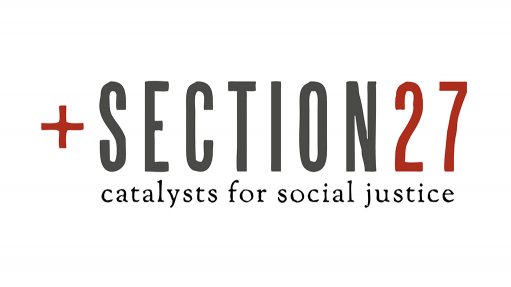
Kharivha Primary School in northern Limpopo has had a water problem for years. It relies on a community tap outside the school. It also has only plain pit toilets - which are illegal.
When the Covid-19 pandemic reached South Africa in March 2020, the school's sanitation problem got bigger. Its pit toilets were "no longer in good use", according to a community member, who didn't want to be named, and the children needed clean water to wash their hands to meet Covid hygiene standards.
The school approached the Limpopo Department of Education (LDOE) for help, and four mobile toilets and water tanks were delivered just before the schools reopened in June 2020.
Mmakadikwe Primary School, a few hours' drive away in central Limpopo, has a similar problem. It also has illegal pit toilets and no facilities for hand washing. Four mobile toilets were also delivered to the school for use during the Covid crisis.
The mobile toilets do not have hand-washing facilities, a critical component in curbing the spread of the coronavirus.
According to community members, both schools have used either department-supplied school assistants who sanitised learners' hands as they entered classrooms or schools supplied classrooms with bottles of soap and water to keep hands clean.
That the mobile toilets were only a temporary solution became clear in December, when the contractors returned and took them away.
After a new contractor was enlisted, mobile toilets were returned to the schools, several days into the new school year.
The schools still rely on the department to pay contractors to provide the mobile toilets.
The mobile toilets are not cheap, either. In 2020 the Department of Basic Education reported that it spent R180-million renting mobile toilets for 6 months in schools in Limpopo and the Eastern Cape so they could open again when the hard lockdowns ended. It spent another R600-million supplying water tanks and water for schools around the country.
The schools would be better served with a more permanent solution to their sanitation challenges.
In fact, the South African Schools Act says that all schools must have a sufficient water supply, available at all times, and sufficient water collection points and water use facilities to allow convenient access to water for drinking and personal hygiene.
School sanitation facilities should be easily accessible and promote health and hygiene standards. It also says plain pit toilets are not allowed in schools and that they should have been eradicated by November 2016.